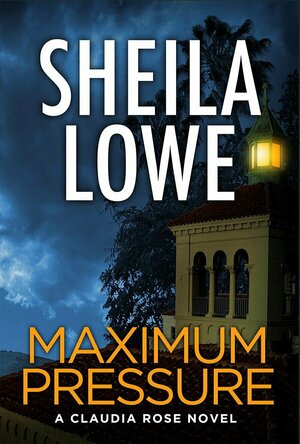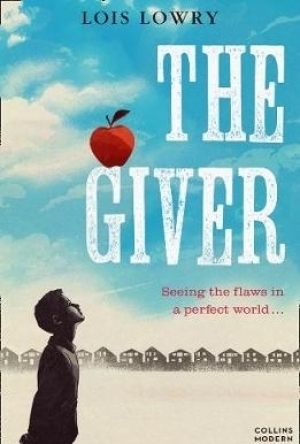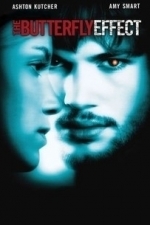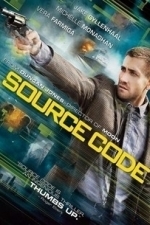Search
Search results

Covered in Flour: 1968: A Young Boy's Perspective on School, Family, and Changing Times
Book
It's 1968 in Whisper Haven, and 8-year-old Carl Pozzi's world is about to change. For...
Biographical Historical Fiction

Maximum Pressure (Claudia Rose Forensic Handwriting Mysteries #9)
Book
Old friendships turn deadly and the past comes back to haunt Claudia Rose in unexpected ways. ...
Crime Thriller Psychological Suspense
Heather Cranmer (2721 KP) rated When Patty Went Away in Books
Jun 7, 2018
(This review can be found on my blog <a href=http://themisadventuresofatwentysomething.blogspot.com/">The (Mis)Adventures of a Twenty-Something Year Old Girl</a>.
The blurb intrigued me a lot. This was a book I really wanted to read. However, I was a bit disappointed when I finally got a chance to read it.
The title definitely fits the book for at least the second half. (I'll go into more detail about that later). The title reminds me of someone who checks out of reality though.
I like the serene look of the cover. I don't really know how it ties into the book though. The cover made me think more of a holiday romance type.
I can't really fault the world building. I thought it was done rather well and very believable. From a historic viewpoint, the facts and events were all correct. It was interesting that Ms. Burt chose to narrate through the point of view of a man. She did a great job of making it work though. There was one or two times I felt a bit confused, but I put it down to just a personal thing like maybe I wasn't paying as much attention as I should've been. The only thing that bothered me was when the narrator of the book would suddenly start talking about a memory. It was too sudden, and I didn't know if it was happening in present time or if it was indeed a memory. I felt as if a memory could've had a better introduction so the audience was aware that it happened at another time in the book.
I felt that the pacing was too slow for about the first two-thirds of the book. It seemed to drone on and on about a topic I wasn't that interested in (farming). I realize that Ms. Burt was setting up a back story, but there was too much focus on the whole farming aspect of the book and not about Patty disappearing as the title and the blurb would suggest. Once the main character goes to Montreal, the pacing picks up decently, and it becomes a book that I had a hard time putting down.
The whole story line was a bit weak, I felt. First off, it reads like two books. The first two-thirds of the book is about a family who has lost their farm due to a bad storm. The reader then takes a journey into finding out how this family struggles to survive without their means of income. I found it a bit tedious because I don't really care about farming, and this book used a lot of farming terminology. The last third of the book is when Jack goes to Montreal to look for Patty. This explores the seedy side of Montreal (which could be just about anywhere) and prostitution involving runaways. I thought the story line was strong during this bit.
I felt that Jack was a well developed character and very likable. It was easy to feel what he was feeling and to feel sorry for him with all that he was going through. Molly is a strict God fearing woman. However, I felt that there was too much focus on her being overweight which was uncalled for. I didn't really like how Christianity was portrayed when it came to Molly. I'm sure there are people in the world like her, but there were times when I just felt a bit offended. I would've loved to know more about Patty and Edie as individuals. I just felt like they didn't get enough time throughout the book, Patty especially. I found it a bit hard to care about Edie and Patty especially as I felt like I didn't have enough information on them to care.
The dialogue fit this book very well. However, I think a lot of people will struggle with the farming terminology and have a hard time relating to the whole farm scenario. As I've said before, this book reads like two books in one. To further prove my point, even the dialogue is different. During the whole family losing their farm scenario, the language isn't vulgar nor is there any swearing (that I could remember). Once Jack gets to Montreal, the language turns a bit vulgar, and there is some swearing.
Overall, When Patty Went Away is just an alright read. The plot could've been better and the merging of ideas could've been smoother. Saying that, the main character is very likable and the world building was good.
I'd recommend this book to those 18+ who know something about farming or those who want a book that will last awhile.
<b>I'd give When Patty Went Away by Jeannie Burt a 2.5 out of 5.</b>
(I received a free paperback of this book from LibraryThing for free in exchange for a fair and honest review).
The blurb intrigued me a lot. This was a book I really wanted to read. However, I was a bit disappointed when I finally got a chance to read it.
The title definitely fits the book for at least the second half. (I'll go into more detail about that later). The title reminds me of someone who checks out of reality though.
I like the serene look of the cover. I don't really know how it ties into the book though. The cover made me think more of a holiday romance type.
I can't really fault the world building. I thought it was done rather well and very believable. From a historic viewpoint, the facts and events were all correct. It was interesting that Ms. Burt chose to narrate through the point of view of a man. She did a great job of making it work though. There was one or two times I felt a bit confused, but I put it down to just a personal thing like maybe I wasn't paying as much attention as I should've been. The only thing that bothered me was when the narrator of the book would suddenly start talking about a memory. It was too sudden, and I didn't know if it was happening in present time or if it was indeed a memory. I felt as if a memory could've had a better introduction so the audience was aware that it happened at another time in the book.
I felt that the pacing was too slow for about the first two-thirds of the book. It seemed to drone on and on about a topic I wasn't that interested in (farming). I realize that Ms. Burt was setting up a back story, but there was too much focus on the whole farming aspect of the book and not about Patty disappearing as the title and the blurb would suggest. Once the main character goes to Montreal, the pacing picks up decently, and it becomes a book that I had a hard time putting down.
The whole story line was a bit weak, I felt. First off, it reads like two books. The first two-thirds of the book is about a family who has lost their farm due to a bad storm. The reader then takes a journey into finding out how this family struggles to survive without their means of income. I found it a bit tedious because I don't really care about farming, and this book used a lot of farming terminology. The last third of the book is when Jack goes to Montreal to look for Patty. This explores the seedy side of Montreal (which could be just about anywhere) and prostitution involving runaways. I thought the story line was strong during this bit.
I felt that Jack was a well developed character and very likable. It was easy to feel what he was feeling and to feel sorry for him with all that he was going through. Molly is a strict God fearing woman. However, I felt that there was too much focus on her being overweight which was uncalled for. I didn't really like how Christianity was portrayed when it came to Molly. I'm sure there are people in the world like her, but there were times when I just felt a bit offended. I would've loved to know more about Patty and Edie as individuals. I just felt like they didn't get enough time throughout the book, Patty especially. I found it a bit hard to care about Edie and Patty especially as I felt like I didn't have enough information on them to care.
The dialogue fit this book very well. However, I think a lot of people will struggle with the farming terminology and have a hard time relating to the whole farm scenario. As I've said before, this book reads like two books in one. To further prove my point, even the dialogue is different. During the whole family losing their farm scenario, the language isn't vulgar nor is there any swearing (that I could remember). Once Jack gets to Montreal, the language turns a bit vulgar, and there is some swearing.
Overall, When Patty Went Away is just an alright read. The plot could've been better and the merging of ideas could've been smoother. Saying that, the main character is very likable and the world building was good.
I'd recommend this book to those 18+ who know something about farming or those who want a book that will last awhile.
<b>I'd give When Patty Went Away by Jeannie Burt a 2.5 out of 5.</b>
(I received a free paperback of this book from LibraryThing for free in exchange for a fair and honest review).
Connor Sheffield (293 KP) rated Supernatural - Season 12 in TV
May 25, 2017
Sam and Dean still kick ass (1 more)
Really comedic Season
Not over yet
-Don't read if you haven't caught up unless you don't mind spoilers-
Supernatural has come a long, long, so very long way since it's first pilot episode and season in 2005. If you haven't started to watch this show yet, then you're probably going to feel like there's too much. I know that I've recommended this show to dozens of my friends or friends of friends, because the show, though slower in some seasons, overall is brilliant.
So here we find ourselves in 2016/17 and Supernatural is airing it's 12th season...good luck catching up if you never started the show. After helping the darkness, God's sister, she rewards Sam and Dean by bringing Mary Winchester, their mother, back from the dead after 30+ years. This messes with her mind because she doesn't belong in this time line and she never got the chance to be a proper mother to the two men she sees standing before her in the bunker. So they give her some time and Mary ends up joining the British Men of Letters who have come to America to sort out the American Hunters. Whether that is to recruit them or destroy them.
For those of you who have read or watched Harry Potter, you know Delores Umbridge and how much you want her dead probably more than Voldemort, well the British Men of Letters are like a group of Umbridge's. You quickly begin to hate them and want them all to be wiped out.
Season 12 brings back some of the classic humour that we've come to love from this show. There's an episode where Dean is losing his memory, of not just his last but basic knowledge, so much so that Sam has to label everything from lamp, to tv, to the door, just so Dean remembers the name of them. It is so beautifully written and whilst hilarious for the majority, there's one scene where my heart sank as you realise Dean is slipping further and further into memory loss, as he stares into a mirror repeating the line 'my name....is....' and eventually responding to himself with 'i don't know' and it is such a heart aching moment because sometimes Supernatural doesn't always end perfectly and you hope that in this particular instance, that Dean gets everything back, with no little blanks.
This season, and I'm not gonna spoil it with names, sees the death of two characters who have been major to the series for a while now. That finale wasn't the best in terms of certain aspects, such as the final sequence where usually something is said that would give us something more about what's been happening, but it leaves the many fans including myself heartbroken and wishing that I never saw what I saw, because the loss of these two characters (and although many characters have died and come back, the cast and crew have confirmed that this isn't one of those cases) is going to make Sam and Dean next journey, one hell of a ride, but most certainly, one hell of a struggle.
Overall a great season full of laughter and emotion, containing one of the funniest episodes I have seen for a while, and an emotional finale that leaves you wanting more as always. I love this show and will continue to watch and recommend it to anyone interesting in monsters, demons, ghouls etc. Like I said though, good luck playing catch up.
Supernatural has come a long, long, so very long way since it's first pilot episode and season in 2005. If you haven't started to watch this show yet, then you're probably going to feel like there's too much. I know that I've recommended this show to dozens of my friends or friends of friends, because the show, though slower in some seasons, overall is brilliant.
So here we find ourselves in 2016/17 and Supernatural is airing it's 12th season...good luck catching up if you never started the show. After helping the darkness, God's sister, she rewards Sam and Dean by bringing Mary Winchester, their mother, back from the dead after 30+ years. This messes with her mind because she doesn't belong in this time line and she never got the chance to be a proper mother to the two men she sees standing before her in the bunker. So they give her some time and Mary ends up joining the British Men of Letters who have come to America to sort out the American Hunters. Whether that is to recruit them or destroy them.
For those of you who have read or watched Harry Potter, you know Delores Umbridge and how much you want her dead probably more than Voldemort, well the British Men of Letters are like a group of Umbridge's. You quickly begin to hate them and want them all to be wiped out.
Season 12 brings back some of the classic humour that we've come to love from this show. There's an episode where Dean is losing his memory, of not just his last but basic knowledge, so much so that Sam has to label everything from lamp, to tv, to the door, just so Dean remembers the name of them. It is so beautifully written and whilst hilarious for the majority, there's one scene where my heart sank as you realise Dean is slipping further and further into memory loss, as he stares into a mirror repeating the line 'my name....is....' and eventually responding to himself with 'i don't know' and it is such a heart aching moment because sometimes Supernatural doesn't always end perfectly and you hope that in this particular instance, that Dean gets everything back, with no little blanks.
This season, and I'm not gonna spoil it with names, sees the death of two characters who have been major to the series for a while now. That finale wasn't the best in terms of certain aspects, such as the final sequence where usually something is said that would give us something more about what's been happening, but it leaves the many fans including myself heartbroken and wishing that I never saw what I saw, because the loss of these two characters (and although many characters have died and come back, the cast and crew have confirmed that this isn't one of those cases) is going to make Sam and Dean next journey, one hell of a ride, but most certainly, one hell of a struggle.
Overall a great season full of laughter and emotion, containing one of the funniest episodes I have seen for a while, and an emotional finale that leaves you wanting more as always. I love this show and will continue to watch and recommend it to anyone interesting in monsters, demons, ghouls etc. Like I said though, good luck playing catch up.
An imperfect perfect future
October 2014 Book of the Month
I received this book for free through Goodreads First Reads.
It has been over twenty years since Lois Lowry’s controversial children’s story The Giver was published and it certainly deserves its status as an essential modern classic. Jonas has grown up in the perfect world of the Community whose survival relies on strict rules and rituals. Adults are assigned spouses and children (one boy and one girl) as they take up their role within the society. At the beginning of the book Jonas is approaching then end of his eleventh year and feeling apprehensive about the Ceremony of Twelve where he will be assigned a job for him to do for the rest of his adult life. Jonas gets selected as the Receiver of Memory – a very rare position – and begins to experience memories from humans who lived a long time ago. For Jonas this is exciting until he begins to see the flaws in his perfect world.
Dystopian literature has become popular over the past few years and it would not be surprising if it were The Giver that inspired these contemporary works. Lowry claims that she did not intend for The Giver to have a sinister feel about it; she was writing an adventure story and exploring the concept of the importance of memory, but it turned out to be something much more thought provoking. As the children’s novelist Margaret Mahy (The Haunting) pointed out, up until the publication of this novel in 1993 Lowry was best known for her funny stories about Anastasia Krupnik resulting in The Giver being even more shocking and unexpected.
The Giver highlights that attempting to produce perfection can often result in the loss of good things as well as the bad. The notion of the ideal world may seem like a wonderful proposal, but in order to achieve it humans would have to do away with free choice as in ironing out the inequalities and injustices of the present world would result in everything becoming the same for each individual.
This is a difficult concept to grasp, particularly for a child. Although intended as a children’s series, The Giver and its following installments are more suitable for young adults and older. The only issue with this is that the writing style was target at a younger audience meaning that the overall story is short and lacks depth. If it were to have been written for older readers then there would have been the scope for it to become a much lengthier novel.
There are a lot of mixed reviews surrounding this book although they have changed greatly since the original publication. To begin with The Giver was banned in some areas however the dystopian theme has become accepted in today’s society. What many people comment on now is the oversimplification of such strong ideas. Then again, as already mentioned, it needs to be emphasized that this book was aimed at children, thus the language reflects the reading skills of its target audience.
The Giver is a gem of a book that not only is enjoyable but also can educate the reader on the dangers of attempting a utopian society and why it is important to retain human memories – even the bad – in order that wisdom can exist. Those who have become fans of contemporary dystopian novels, for example Divergent by Veronica Roth or Delirium by Lauren Oliver, will be sure to love this series.
I received this book for free through Goodreads First Reads.
It has been over twenty years since Lois Lowry’s controversial children’s story The Giver was published and it certainly deserves its status as an essential modern classic. Jonas has grown up in the perfect world of the Community whose survival relies on strict rules and rituals. Adults are assigned spouses and children (one boy and one girl) as they take up their role within the society. At the beginning of the book Jonas is approaching then end of his eleventh year and feeling apprehensive about the Ceremony of Twelve where he will be assigned a job for him to do for the rest of his adult life. Jonas gets selected as the Receiver of Memory – a very rare position – and begins to experience memories from humans who lived a long time ago. For Jonas this is exciting until he begins to see the flaws in his perfect world.
Dystopian literature has become popular over the past few years and it would not be surprising if it were The Giver that inspired these contemporary works. Lowry claims that she did not intend for The Giver to have a sinister feel about it; she was writing an adventure story and exploring the concept of the importance of memory, but it turned out to be something much more thought provoking. As the children’s novelist Margaret Mahy (The Haunting) pointed out, up until the publication of this novel in 1993 Lowry was best known for her funny stories about Anastasia Krupnik resulting in The Giver being even more shocking and unexpected.
The Giver highlights that attempting to produce perfection can often result in the loss of good things as well as the bad. The notion of the ideal world may seem like a wonderful proposal, but in order to achieve it humans would have to do away with free choice as in ironing out the inequalities and injustices of the present world would result in everything becoming the same for each individual.
This is a difficult concept to grasp, particularly for a child. Although intended as a children’s series, The Giver and its following installments are more suitable for young adults and older. The only issue with this is that the writing style was target at a younger audience meaning that the overall story is short and lacks depth. If it were to have been written for older readers then there would have been the scope for it to become a much lengthier novel.
There are a lot of mixed reviews surrounding this book although they have changed greatly since the original publication. To begin with The Giver was banned in some areas however the dystopian theme has become accepted in today’s society. What many people comment on now is the oversimplification of such strong ideas. Then again, as already mentioned, it needs to be emphasized that this book was aimed at children, thus the language reflects the reading skills of its target audience.
The Giver is a gem of a book that not only is enjoyable but also can educate the reader on the dangers of attempting a utopian society and why it is important to retain human memories – even the bad – in order that wisdom can exist. Those who have become fans of contemporary dystopian novels, for example Divergent by Veronica Roth or Delirium by Lauren Oliver, will be sure to love this series.
Dianne Robbins (1738 KP) rated Still Alice in Books
Sep 3, 2018
I just finished reading a novel called Still Alice by Lisa Genova about Alice, who is diagnosed with early onset Alzheimer's disease in her early fifties. It's written from the point of view of the woman with the disease instead of the usual POV of a caretaker. With every page, as she fell deeper into the grips of the disease, I was convinced that I had early onset Alzheimer's. The phrases, it's a real page-turner or I couldn't put it down, are used so often that we forget that there are books that are actually like that. This one is. I had physical reaction to the book. I gasped in awe and terror. I laughed. I was fascinated by its beauty and terrified of the disease becoming a reality in my life someday. I cried. I got angry. I sighed with relief. I went through a whirlwind of emotion. It took my breath away. It should be required reading for everyone.
The novel is written so well that I become consumed by the author's thoughts and feelings and it really drew me in. After I finished the book, it took maybe a few days for me to realize it was just a book and not me losing my memory and my mind. I highly recommend the book, even if the subject matter may be scary to you, because you get a sense of how Alzheimer's robs a person of their thoughts and abilities and it will give you insight into how to treat loved one's and other victims of dementia and Alzheimer's. It was fascinating to learn how Alzheimer's ravages the different areas of the brain and what effect it has on the person. It explained what I always wondered, how can a person die from Alzheimer's. This IS NOT a spoiler. I am not saying that Alice dies in the book. Just that the mechanics of the disease is explain very well. It isn't just a novel for entertainment and enjoyment. It tells you about Alzheimer's inside out and as both Alice and her husband are scientists and Harvard professors, it doesn't dumb it down to the audience. It is not vague details but explicit facts that you will remember, that will change the way you think of Alzheimer's and aging and, dare I say, will change your life.
The character is a professor of psychology at Harvard (the author is also is a neuropsychologist or neuropsychiatrist. I forget which, oh, the irony! So she knows her stuff) and although at a few points, I thought it was far above my head, but when I really dug in and read the sentences a few times, it started to make sense and I think I learned something from it. I have fibromyalgia and arthritis so I have memory loss and cognitive thought issues and deal with so much pain in my life that it's difficult to understand new concepts, especially in the realm of academia. Other people may not have as much difficulty as I did getting through the scientific aspects of the disease and the vast influx of new information.
Sidenote: I was very happy to discover that the book has been made into a movie being released soon with Julianne Moore as the title character. That is one I will definitely see in the theater.
I'm so glad that the movie is made and will reach more people and expose them to early onset Alzheimer's.
Bravo to the author for taking us down the path, pain and beauty, yes, beauty of Alzheimer's.
The novel is written so well that I become consumed by the author's thoughts and feelings and it really drew me in. After I finished the book, it took maybe a few days for me to realize it was just a book and not me losing my memory and my mind. I highly recommend the book, even if the subject matter may be scary to you, because you get a sense of how Alzheimer's robs a person of their thoughts and abilities and it will give you insight into how to treat loved one's and other victims of dementia and Alzheimer's. It was fascinating to learn how Alzheimer's ravages the different areas of the brain and what effect it has on the person. It explained what I always wondered, how can a person die from Alzheimer's. This IS NOT a spoiler. I am not saying that Alice dies in the book. Just that the mechanics of the disease is explain very well. It isn't just a novel for entertainment and enjoyment. It tells you about Alzheimer's inside out and as both Alice and her husband are scientists and Harvard professors, it doesn't dumb it down to the audience. It is not vague details but explicit facts that you will remember, that will change the way you think of Alzheimer's and aging and, dare I say, will change your life.
The character is a professor of psychology at Harvard (the author is also is a neuropsychologist or neuropsychiatrist. I forget which, oh, the irony! So she knows her stuff) and although at a few points, I thought it was far above my head, but when I really dug in and read the sentences a few times, it started to make sense and I think I learned something from it. I have fibromyalgia and arthritis so I have memory loss and cognitive thought issues and deal with so much pain in my life that it's difficult to understand new concepts, especially in the realm of academia. Other people may not have as much difficulty as I did getting through the scientific aspects of the disease and the vast influx of new information.
Sidenote: I was very happy to discover that the book has been made into a movie being released soon with Julianne Moore as the title character. That is one I will definitely see in the theater.
I'm so glad that the movie is made and will reach more people and expose them to early onset Alzheimer's.
Bravo to the author for taking us down the path, pain and beauty, yes, beauty of Alzheimer's.
Gareth von Kallenbach (980 KP) rated The Butterfly Effect (2004) in Movies
Aug 14, 2019
For most people, childhood is a time filled mainly with happy memories of carefree playing, a loving family, and counting the days until the next school vacation.
Sadly, not everyone has fond memories of their childhood as for some; the years of joy and laughter are filled with pain and sadness. Such is the case of Evan Treborn (Ashton Kutcher) a gifted and caring individual who suffers from memory lapses much like his institutionalized father before him.
A series of traumatic events occur forcing Evan and his mother to move from their home leaving his best friends Kayleigh and Lenny behind.
Years later Evan is a successful and popular student at the state college and has not had a blackout for seven years, which is about the time his mother, moved him from the old neighborhood. Evan is persuaded by a friend to read his old journal entries and in doing so starts to recover some of his lost memories.
With the understanding that he has blacked out traumatic events in his life, Evan returns to his old home to seek out his friends with the hope that his missing memories can be restored. Sadly Evans return does not go well and his questions cause consequences for those who can remember what exactly happened.
Desperate to make sense of what is happening, Evan studies his journals and discovers that he is able to travel back to the time he has blacked out, and proceeds to make changes that he believes will improve the long-term outcome.
Evan awakens to find himself with Kayleigh (Amy Smart) and learns that the two of them have been an item ever since his childhood. What at first seems like a dream come true soon sours when Evan realizes that the ripple effects from his changes in the past have affected others around him. Desperate to undo a situation that now threatens him as well, Evan begins a series of trips into his past in an effort to recover his memories and right the wrongs that he is slowly starting to remember. Evan soon finds himself in a situation gone wild as no matter what Evan changes in the past, things are not put right as improving things for one person often makes others suffer as a result of the altered history.
Skillfully written and directed by Eric Bress and J Mackye Gruber The Butterfly Effect is a stunning look into a troubled psyche and a study in the effects of childhood trauma. The film is equally gripping and disturbing and tackles a wide-range of controversial topics. There is no sugar coating to the film as the depths of Evans repressed memories are explored making the film one of the best Dramas in recent memory.
Kutcher is amazing as he handles a difficult and complex role with skill and passion showing that he is capable of so much more than the brain dead beefcake roles he has been cast in previously. Kutcher is the key that makes the film work as the entire film and supporting cast center on him and he pulls it off brilliantly. Strong supporting work by Amy Smart, Ethan Suplee, and Eldon Henson keep the film gripping and tense.
The only issue I had with the film was the ending, which seemed to me like a tacked on Hollywood ending and not in keeping with the tone of the film. That being said, “The Butterfly Effect is a strong film and one that will not easily be forgotten.
Sadly, not everyone has fond memories of their childhood as for some; the years of joy and laughter are filled with pain and sadness. Such is the case of Evan Treborn (Ashton Kutcher) a gifted and caring individual who suffers from memory lapses much like his institutionalized father before him.
A series of traumatic events occur forcing Evan and his mother to move from their home leaving his best friends Kayleigh and Lenny behind.
Years later Evan is a successful and popular student at the state college and has not had a blackout for seven years, which is about the time his mother, moved him from the old neighborhood. Evan is persuaded by a friend to read his old journal entries and in doing so starts to recover some of his lost memories.
With the understanding that he has blacked out traumatic events in his life, Evan returns to his old home to seek out his friends with the hope that his missing memories can be restored. Sadly Evans return does not go well and his questions cause consequences for those who can remember what exactly happened.
Desperate to make sense of what is happening, Evan studies his journals and discovers that he is able to travel back to the time he has blacked out, and proceeds to make changes that he believes will improve the long-term outcome.
Evan awakens to find himself with Kayleigh (Amy Smart) and learns that the two of them have been an item ever since his childhood. What at first seems like a dream come true soon sours when Evan realizes that the ripple effects from his changes in the past have affected others around him. Desperate to undo a situation that now threatens him as well, Evan begins a series of trips into his past in an effort to recover his memories and right the wrongs that he is slowly starting to remember. Evan soon finds himself in a situation gone wild as no matter what Evan changes in the past, things are not put right as improving things for one person often makes others suffer as a result of the altered history.
Skillfully written and directed by Eric Bress and J Mackye Gruber The Butterfly Effect is a stunning look into a troubled psyche and a study in the effects of childhood trauma. The film is equally gripping and disturbing and tackles a wide-range of controversial topics. There is no sugar coating to the film as the depths of Evans repressed memories are explored making the film one of the best Dramas in recent memory.
Kutcher is amazing as he handles a difficult and complex role with skill and passion showing that he is capable of so much more than the brain dead beefcake roles he has been cast in previously. Kutcher is the key that makes the film work as the entire film and supporting cast center on him and he pulls it off brilliantly. Strong supporting work by Amy Smart, Ethan Suplee, and Eldon Henson keep the film gripping and tense.
The only issue I had with the film was the ending, which seemed to me like a tacked on Hollywood ending and not in keeping with the tone of the film. That being said, “The Butterfly Effect is a strong film and one that will not easily be forgotten.
Heather Cranmer (2721 KP) rated Last Summer in Books
Jul 24, 2019
I first heard about Last Summer by Kerry Lonsdale when I was browsing the giveaway section of Goodreads. I'm a stickler for books that deal with memory loss and trying to regain memories, so Last Summer definitely caught my eye. I was thrilled when I received an email from Goodreads saying I had won the eBook for Last Summer. After reading this novel, I'm glad I didn't pay for it. While it wasn't a great read, it was just lackluster.
Ella , a journalist, is in the hospital after a car accident that killed her unborn child. However, after being there for a few days, she suddenly loses her memory about being being pregnant and what happened right before she became pregnant and during her pregnancy. Desperate to remember her child, she does whatever she can to remember. When she is assigned to get an exclusive story about Nathan, a former celebrity whose son has just died, he lets her know that he knows some of things she forgot. However, some memories are best left forgotten.
The plot sounded for Last Summer like it would be promising. I felt like this book would be more about the mystery of Ella's memories. However, it seemed more like a romance novel than anything else which was a disappointment for me. It was more about Ella loving Nathan (not a spoiler, don't worry) but also loving her husband and her feeling guilty about it. At times, the plot seemed a bit muddled as well as predictable. There are a couple of plot twists I didn't see coming. The dialogue and writing seemed realistic as did the plot, so there's that. One thing that did bother me was how much sex was mentioned in the book. There were times I felt as if sex was mentioned just for the sake of mentioning it. I felt like sometimes it would have been implied or not mentioned at all.
The characters were just so so as well. I wanted to like them more, but I just had trouble. I don't think they were written poorly for the most part. I just couldn't feel a connection. There was something I didn't really like about Damien, Ella's husband, starting from the beginning of the book. He started off as being a bit mean and a bit smarmy at times. I kept wanting Ella to just run away from him because I did not like the guy! Ella sometimes felt a little too one dimensional for my liking. I felt like she was missing some depth to her, and there were many times she felt shallow. I did like Nathan, and I felt really bad for him. The hand he was given was a bad one. He was the only one character that felt the most sincere. I just wanted to hug him so many times.
The pacing for Last Summer was slow in some places, but it wasn't too bad. It did hold my attention throughout, and I found myself wanting to read more each time I had a spare minute. The story does flow well.
Trigger warnings for Last Summer include child loss, profanity, drinking, marital cheating, sex (although only slightly graphic), and lying.
All in all, Last Summer is a just an okay read. There's nothing that special about it where I would actually remember reading it a few months down the line. Saying that, I would recommend Last Summer by Kerry Lonsdale simply because I feel like it would make a good book to read while on vacation.
Ella , a journalist, is in the hospital after a car accident that killed her unborn child. However, after being there for a few days, she suddenly loses her memory about being being pregnant and what happened right before she became pregnant and during her pregnancy. Desperate to remember her child, she does whatever she can to remember. When she is assigned to get an exclusive story about Nathan, a former celebrity whose son has just died, he lets her know that he knows some of things she forgot. However, some memories are best left forgotten.
The plot sounded for Last Summer like it would be promising. I felt like this book would be more about the mystery of Ella's memories. However, it seemed more like a romance novel than anything else which was a disappointment for me. It was more about Ella loving Nathan (not a spoiler, don't worry) but also loving her husband and her feeling guilty about it. At times, the plot seemed a bit muddled as well as predictable. There are a couple of plot twists I didn't see coming. The dialogue and writing seemed realistic as did the plot, so there's that. One thing that did bother me was how much sex was mentioned in the book. There were times I felt as if sex was mentioned just for the sake of mentioning it. I felt like sometimes it would have been implied or not mentioned at all.
The characters were just so so as well. I wanted to like them more, but I just had trouble. I don't think they were written poorly for the most part. I just couldn't feel a connection. There was something I didn't really like about Damien, Ella's husband, starting from the beginning of the book. He started off as being a bit mean and a bit smarmy at times. I kept wanting Ella to just run away from him because I did not like the guy! Ella sometimes felt a little too one dimensional for my liking. I felt like she was missing some depth to her, and there were many times she felt shallow. I did like Nathan, and I felt really bad for him. The hand he was given was a bad one. He was the only one character that felt the most sincere. I just wanted to hug him so many times.
The pacing for Last Summer was slow in some places, but it wasn't too bad. It did hold my attention throughout, and I found myself wanting to read more each time I had a spare minute. The story does flow well.
Trigger warnings for Last Summer include child loss, profanity, drinking, marital cheating, sex (although only slightly graphic), and lying.
All in all, Last Summer is a just an okay read. There's nothing that special about it where I would actually remember reading it a few months down the line. Saying that, I would recommend Last Summer by Kerry Lonsdale simply because I feel like it would make a good book to read while on vacation.
Gareth von Kallenbach (980 KP) rated Source Code (2011) in Movies
Aug 7, 2019
Following upon his breakout success with the film Moon director Duncan Jones has returned with Source Code and has proven that he is not a one-hit wonder but also a talent on the rise.
The film stars Jake Gyllenhaal as Colter Stevens who, after waking up on a train, finds himself disoriented and unable to identify his travel companion, the attractive Christina Warren (Michelle Monaghan), who sits across from him eagerly discussing things they appear to have spoken about previously.
Taking a quick survey of his surroundings, Colter finds out that he is on a train heading to Chicago and that he cannot explain how he ended up where he currently is. Colter is not given much time to ponder his situation as the train is suddenly rocked by a massive explosion and he finds himself engulfed in a wall of flame. Shortly thereafter Colter awakens and finds himself upside down and strapped into what appears to be a cockpit of some sort.
A voice soon fills the cockpit, followed by the face of the woman he can’t identify on a video monitor. Unable to ascertain what is going on, a frantic Colter only recalls that he was a helicopter pilot on mission in Afghanistan. The mystery woman (Vera Farmiga) tells him that he is now part of a top-secret project that is attempting to unravel the mystery behind the bombing of the train.
Before he can ask too many questions, Colter once again finds himself back on the train with Christina and the same sequence of events occur before the train is engulfed by devastating fireball. When he once again awakens in his cockpit, Colter learns that the project he’s involved with can send him back in time 8 minutes into the body of someone on the train. He will be sent back time and time again to relive those final 8 min. in an effort to determine who is responsible for the bombing.
Despite his protests, Colter relives the events each time looking for new clues and each time ending up engulfed in the fireball and awakening in his cockpit. Eventually after numerous trips to the past Colter becomes obsessed with not only getting to the bottom of the mystery but with saving Christina to whom he is becoming attached through their numerous 8 minute interactions. Colter is also desperate to determine his exact situation as he has no memory of how he ended up in the program and finds himself not only trying to solve the mystery of the bombing, save Christina, but also fill in the gaps in his memory.
What follows is a fast-paced, character-driven adventure film that relies on the interaction’s between the two leads rather than special effects to carry the film. Gyllenhaal and Monaghan have good chemistry with each other and the film has some nice twists and turns that will keep the audience engrossed even if the concepts of time travel and temporal mechanics escape them.
Jones keeps the film moving at a brisk pace and it does not drag or overstay its welcome. Like Moon, Jones has based the film around a leading man who is facing isolation and questioning his mental state. With what could’ve been a dumbed-down action film, Jones has exceeded expectations and produced a smart and innovative action thriller with a touch of science fiction and romance thrown in, a winning combination that makes for a very enjoyable film.
The film stars Jake Gyllenhaal as Colter Stevens who, after waking up on a train, finds himself disoriented and unable to identify his travel companion, the attractive Christina Warren (Michelle Monaghan), who sits across from him eagerly discussing things they appear to have spoken about previously.
Taking a quick survey of his surroundings, Colter finds out that he is on a train heading to Chicago and that he cannot explain how he ended up where he currently is. Colter is not given much time to ponder his situation as the train is suddenly rocked by a massive explosion and he finds himself engulfed in a wall of flame. Shortly thereafter Colter awakens and finds himself upside down and strapped into what appears to be a cockpit of some sort.
A voice soon fills the cockpit, followed by the face of the woman he can’t identify on a video monitor. Unable to ascertain what is going on, a frantic Colter only recalls that he was a helicopter pilot on mission in Afghanistan. The mystery woman (Vera Farmiga) tells him that he is now part of a top-secret project that is attempting to unravel the mystery behind the bombing of the train.
Before he can ask too many questions, Colter once again finds himself back on the train with Christina and the same sequence of events occur before the train is engulfed by devastating fireball. When he once again awakens in his cockpit, Colter learns that the project he’s involved with can send him back in time 8 minutes into the body of someone on the train. He will be sent back time and time again to relive those final 8 min. in an effort to determine who is responsible for the bombing.
Despite his protests, Colter relives the events each time looking for new clues and each time ending up engulfed in the fireball and awakening in his cockpit. Eventually after numerous trips to the past Colter becomes obsessed with not only getting to the bottom of the mystery but with saving Christina to whom he is becoming attached through their numerous 8 minute interactions. Colter is also desperate to determine his exact situation as he has no memory of how he ended up in the program and finds himself not only trying to solve the mystery of the bombing, save Christina, but also fill in the gaps in his memory.
What follows is a fast-paced, character-driven adventure film that relies on the interaction’s between the two leads rather than special effects to carry the film. Gyllenhaal and Monaghan have good chemistry with each other and the film has some nice twists and turns that will keep the audience engrossed even if the concepts of time travel and temporal mechanics escape them.
Jones keeps the film moving at a brisk pace and it does not drag or overstay its welcome. Like Moon, Jones has based the film around a leading man who is facing isolation and questioning his mental state. With what could’ve been a dumbed-down action film, Jones has exceeded expectations and produced a smart and innovative action thriller with a touch of science fiction and romance thrown in, a winning combination that makes for a very enjoyable film.







